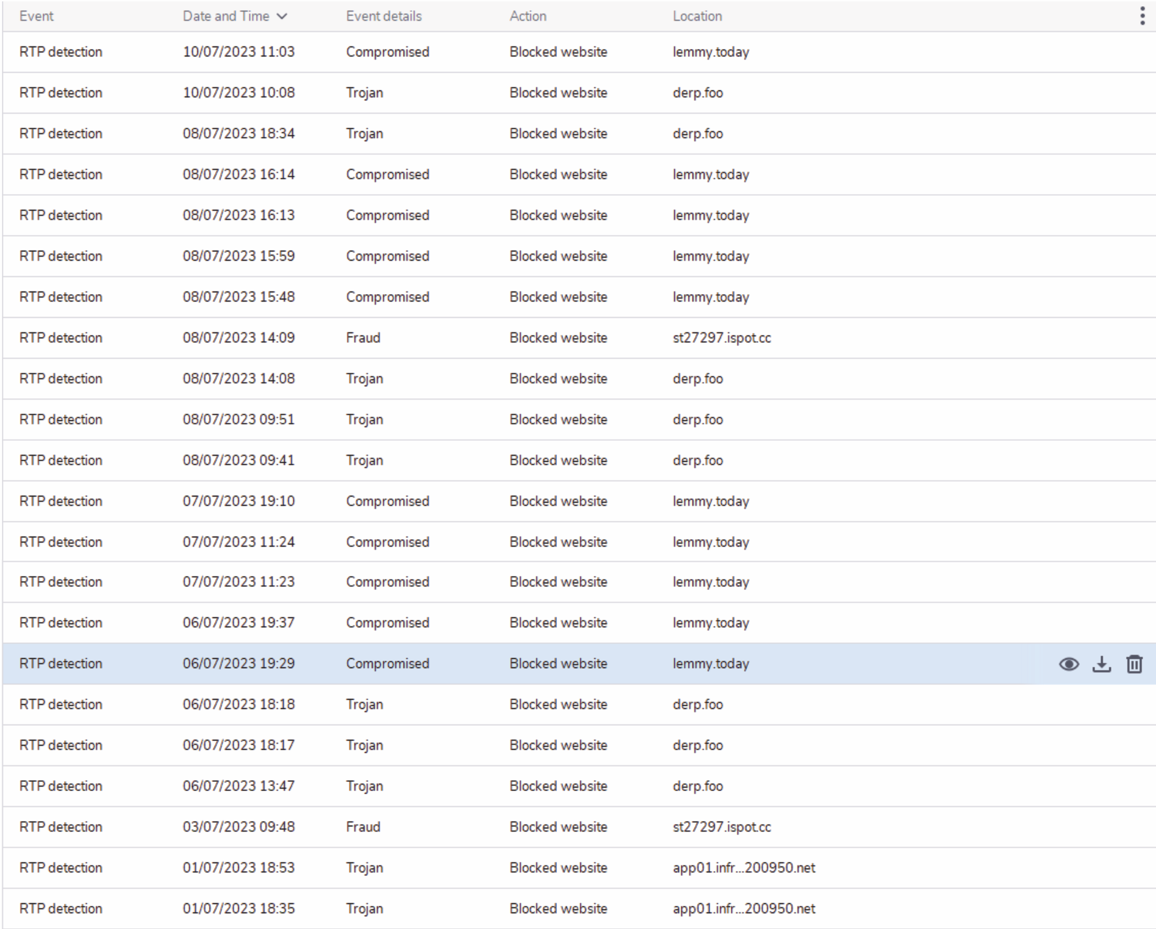Everytime I browse Lemmy, my Bitdefender always pops up


Should I just ignore and/or whitelist this? Gotta admit it’s a bit c/MildlyInfuriating tho…
Here is a log when browsing Lemmy over the last week or so, as of 10th July.
Believe the derp.foo and .today are both federated instances. Don’t know what the other rows are.

My Avast doesn’t say anything when visiting those instances, although it blocks connections to derp.foo even when it’s just pictures browsing from lemmy.world. It says it’s being infected by “URL:Botnet”.
People still use Avast!?
Eh, it’s kinda annoying but it does its job. Plus I hate subscriptions and the best free option I’ve found (I don’t think they do one-time payment AVs anymore?) is Avast + Malwarebytes. What do you suggest?
Just uninstall all of it and let Windows take care of itself. You don’t need antivirus. Do avoid obviously suspicious files, and you should be fine.
That’s the thing, I’m really paranoid and I don’t trust my brain alone to judge what is an “obviously suspicious file”. I might be exaggerating, but better safe than sorry.
Sure, but Windows Defender is built in and doesn’t suck. I have even heard security professionals make the argument that anti viruses may increase attack surface as much or more than they defend you (not necessarily asserting that is the case).
Windows Defender is great, and MS has been adding really advanced protection including machine learning heuristics, etc. that make it really competitive. It is not 100% foolproof though, there’s a lot of old and new viruses it will not detect.
Check out some of the virus gauntlets this channel runs Windows Defender (and other AVs) through: https://youtu.be/1DG3y3q8_9M. Even the latest Defender will often fail to detect a lot of threats. Of course, this channel is running known bad infected executables, and the best line of defense is just not to run executables from unknown sources. It’s possible to just visit a malicious URL and get infected through JS though, so it gets a bit trickier.
I’m not familiar with the argument that antivirus software will increase your attack surface. That sounds interesting, do you have any links I could read up on?
I wish I could give you links! I think I heard it on a security focused podcast? It has been quite some time since I tried to stay current on this sort of thing in more than a casual way.
Here is an alternative Piped link(s): https://piped.video/1DG3y3q8_9M
Piped is a privacy-respecting open-source alternative frontend to YouTube.
I’m open-source, check me out at GitHub.
I had that popup too. I found the actual URL it was triggering on, and submitted a false positive to BitDefender. I would recommend you do the same. BitDefender should then release an updated database that whitelist it.
Link: https://www.bitdefender.com/consumer/support/answer/29358/
When something like these pop up, what steps can someone take to determine whether they are false positive and actually safe or a valid alert?
BitDefender is actually really bad about giving you useful information to go off. Ideally it should tell you exactly what malicious action or malware it’s detecting. If your AV does this, you can see if the particular type of detection makes sense.
For example, if it’s an executable file with a clearly displayed malware name “Trojan.BadTimes.X” or something, that’s really bad news. Same for URLs. However, sometimes AVs will flag “malicious behaviour”, which gets trickier. They will often flag qBittorrent or other legit apps that are used to download pirated software, etc.
What you can do is to submit the file or URL that was flagged to VirusTotal. This shows you a comprehensive list of whether any other antivirus software is also marking the file/URL as infected.
Generally though, I’d play it safe. I’d get in touch with the page owner or google around to see if this is a known issue, and unless I can be completely sure it’s actually safe, I wouldn’t use it.
Thanks so much! You’ll see in my post there were also alerts from Malwarebytes, so good to know the above steps thanks!
You’re welcome!
This has nothing to do with lemmy.world.
Well, those are federated communities so looking into whether the threat is real or not could be useful I guess.





